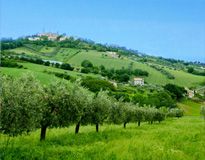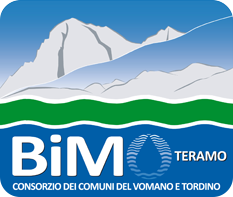If you wanted to represent each Italian region through a musical instrument, for Abruzzo this would certainly be the diatonic accordion, in the dialect "ddu’ 'botte".
Legend has it that one summer evening in 1863 a farmer from the Marches, Paolo Soprani, hosted an Austrian pilgrim in his cottage in Castelfidardo, returning from the sanctuary of the Madonna of Loreto. The pilgrim brought with him a strange musical instrument, which fascinated Soprani to the point of making a copy and then founding his famous organ builder.
Undoubtedly, the practice of 800 pilgrimages has favored cultural exchanges: the cult of the Madonna of Loreto is particularly widespread in Teramo Abruzzo, as well as that of the Sanctuary of San Gabriele in Isola del Gran Sasso. We can not exclude contacts and mutual influences related to the activities of pilgrims and street vendors who revolved around the two shrines. The modern diatonic accordion spread along the Adriatic coast in the second half of the 19th century, when the Soprani di Castelfidardo company started its production on Austrian models. The opening of the Marche borders with the Unity of Italy further encouraged trade with Abruzzo. The construction companies of the musical instrument are concentrated in particular in the area of Ancona and in the province of Teramo (another hypothesis is that the organ has spread here through the commercial exchanges between the ports of Ancona and Giulianova). The organ from Abruzzo is characterized by its particular shape: the most widespread version is the two-bass version, called "ddù botte". The woods used are mahogany for the frame, the cherry tree for the bass and singing, spruce for the valves. The instrument has two keyboards just like an accordion. It is the protagonist of the traditional serenades and itinerant concerts that take place during the food and wine festivals and the summer events of Abruzzo, with the rich repertoire of local folk songs.
The ddu’ botte, in particular, is dedicated to the annual festival held in August in the municipality of Basciano, on the occasion of the historic festival of Abruzzo ham, which registers the participation of players from all over Abruzzo and Italy central.
 en
en 













